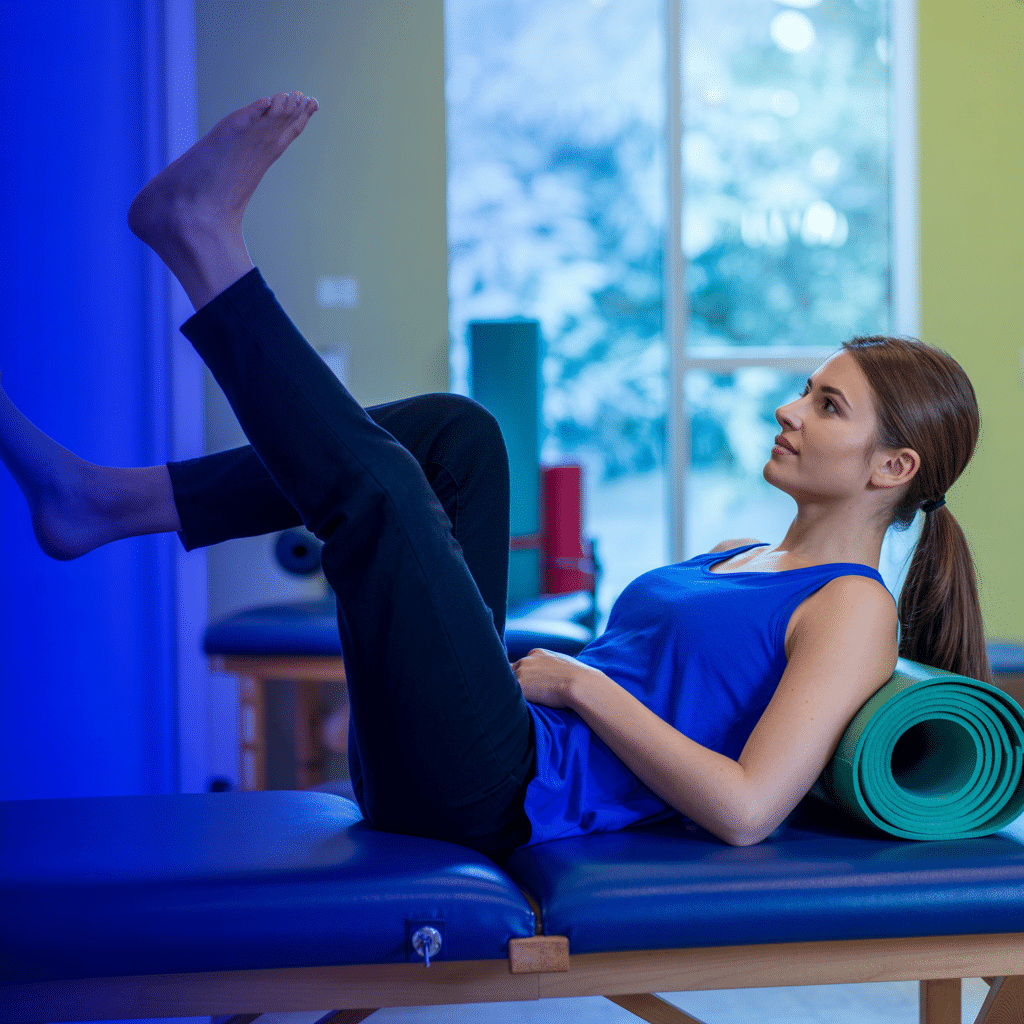Sciatica Nerve Flossing: What It Is, Why It Works, and How It’s Backed by Science
It’s been a brilliant week.
I kicked things off by heading to Cardiff for the opening Oasis gig a little throwback to the 2000s that didn’t disappoint. I went with my brothers, and let’s just say – the vocals weren’t just on stage. Definitely worth every bit of the sore throat.

Last weekend, with the weather dialled up to “scorching,” we took Kit and Florie wild swimming. Needs must when it’s that hot and honestly, nothing beats the look on their faces jumping in for the first time.
Now, let’s talk about something a bit less rock ‘n’ roll but way more relevant if you’ve got sciatica or lower back pain: sciatic nerve mobilisation also called nerve flossing or neurodynamic sliding.
What Is Sciatic Nerve Flossing?
It’s a gentle movement technique that helps the sciatic nerve glide through its surrounding tissues kind of like flossing between your teeth, but in your low back and leg.
This helps to:
- Reduce irritation around the nerve
- Ease leg and back pain
- Improve flexibility and movement
- Support the nerve’s ability to heal
And no you don’t need any fancy equipment to do it. Just a chair, a floor, and a bit of guidance.
But Does It Work? Here’s What the Research Says
You know I love a good study, and this time the science is very clear. A huge study of 20 clinical trials (over 870 people) showed:
- Large reduction in pain
- Major improvement in disability
And these weren’t just mild cases ? the benefits were seen in both chronic and acute sciatica, whether used alone or alongside other treatments (Lin et al., 2023)
Multiple reviews have confirmed that nerve mobilisation techniques significantly reduce pain and improve daily function in people with back and nerve-related leg issues.
7 out of 8 clinical trials showed statistically significant pain relief (Basson et al., 2017).
How Do nerve mobilisations work?
Studies using ultrasound and nerve tracking show that nerve flossing (Vikayalakshmi et al., 2022):
- Reduces swelling inside the nerve
- Improves nerve motion (measured as ~4.15mm of excursion!)
- Helps the nerve regenerate by stimulating growth factors
- Enhances range of motion especially straight leg raise, hip movement, and nerve glide
Basically, you’re giving the nerve room to breathe, move, and recover.
How Do You Actually Do It?
Here are 3 easy ways we teach clients to get started (and they’re all safe if your symptoms are stable and improving): You can watch me doing these on youtube here
1. Seated Nerve Glide
- Sit upright on the edge of a chair
- Straighten one leg and pull your toes up
- At the same time, tilt your head backward
- Then reverse: bend your knee, point your toes down, tuck your chin
Repeat 10£15 times per leg
2. Lying Nerve Glide
- Lie on your back, hug one knee toward your chest
- Slowly straighten the leg, pulling toes up
- Reverse: bend knee, point toes
10 reps each side
3. Slump Sitting Floss (Advanced)
- Sit, slouch gently, tuck chin
- Extend one leg and flex the foot
- Then lift your head and straighten your back
8£10 slow, coordinated reps
Important: No sharp pain, no bouncing, and always stop if tingling, numbness, or weakness increases.
How Often Should You Do It?
Most studies recommend:
- 1£2 sessions per day
- For 4£10 weeks
- Combined with core exercises, posture correction, and education to stay active
Consistency is key. You won’t feel magic on Day 1, but by Week 2 or 3 most people report a real shift in mobility and comfort.
Who Shouldn’t Try This at Home?
If:
- Your symptoms are getting worse
- You’ve got weakness or foot drop
- Or the pain is intense and shooting down your leg
It’s better to be assessed by a physio or chiropractor trained in nerve mobilisation. We offer this at West Chiropractic as part of our disc and sciatica recovery protocols.
If your sciatica has been hanging around longer than your Oasis CDs, it’s time to do something about it.
Nerve mobilisation is safe, effective, and backed by proper science not just trends. And paired with the right rehab and decompression treatment, it can get you walking, sitting, and sleeping without pain again.
References
Basson et al., 2017, The Effectiveness of Neural Mobilization for Neuromusculoskeletal Conditions: A Systematic Review and Meta-analysis
Lin et al., 2023, Neural Mobilization for Reducing Pain and Disability in Patients with Lumbar Radiculopathy: A Systematic Review and Meta-Analysis
Vikayalakshmi et al., 2022, Effectiveness of neural mobilization on sciatic nerve excursion, symptom and regional function in individuals with nerve related low back pain
If you are wanting to chat more about the information above then why not book a call with me and we can go into more detail? Click here to book or if you want to get an assessment then Book a consultation with a Chiropractor here
If you do know someone who wants more advice, please send them our details. You can send them this assessment as well to diagnose their back pain. It is a great tool to understand where your back pain is coming from, it is free and takes 60 seconds. Click here for assessment


